Plex: 3 August 2022
News and views from around the Plex.

The Biweekly Plex Dispatch is an inter-community newspaper published by Collective Sense Commons on first and third Wednesdays of each month. Price per issue: 1 USD, or your choice of amount (even zero).
In This Issue
- Greg Tate Gardening
- Recap: Plex Weekly Calendar, Office Hours
- The Civilization 2.0 Game
- Ready for Patient Expansion/Growth Capital?
- One of These Things Is Not Like the Others
- Lessons from Optimists
- “Tools for Thinking” Events
- Now We Need Scale
- Snowden, Smith and the Cynefin Framework Down Under
Greg Tate Gardening
by charles blass
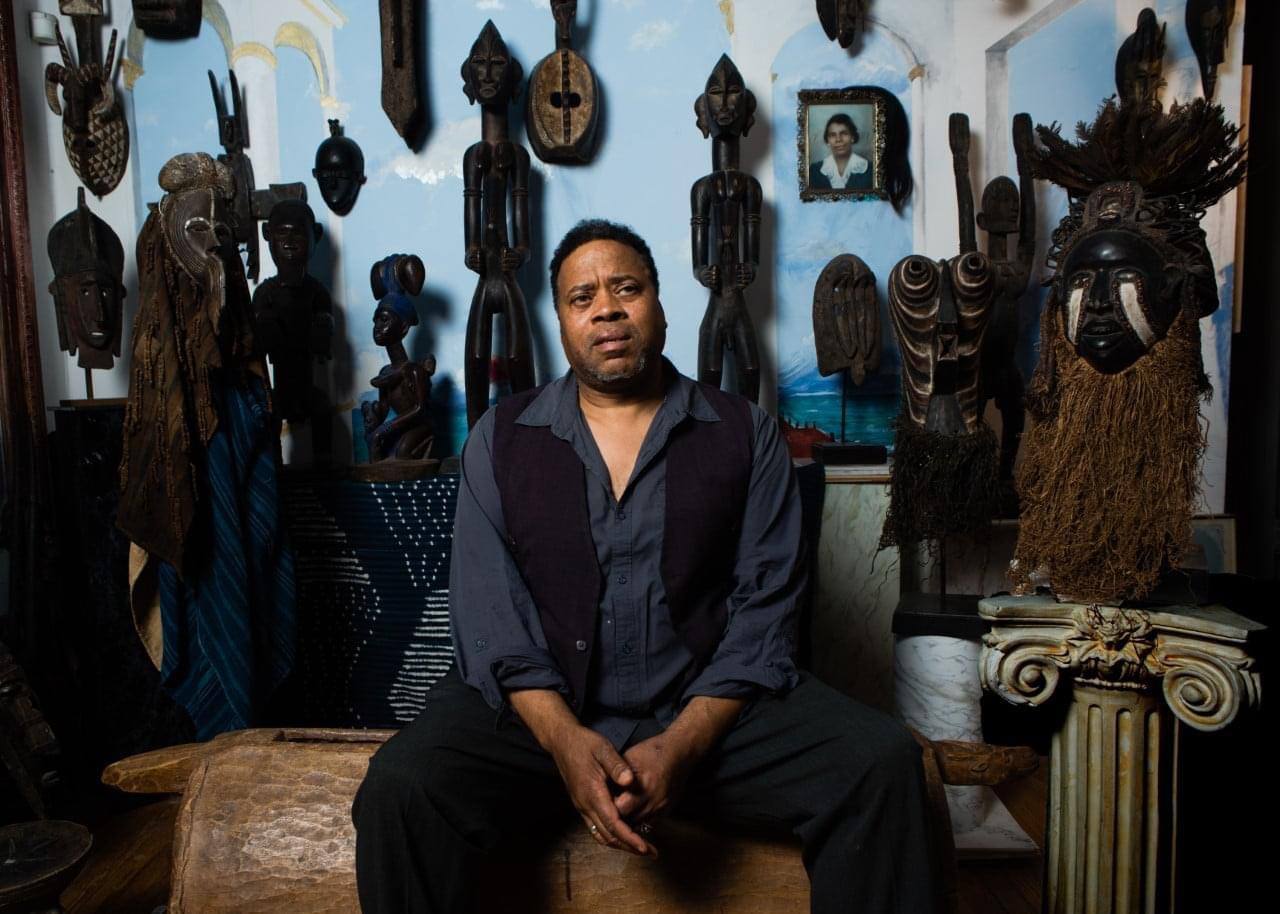
yo plex…
the great Greg Tate passed onward and outward last December. he was a friend, mentor and collaborator over many years. last spring he also passed through a couple of cicolab sessions on “jazz patterns” which abruptly morphed into a deep inquiry on race.
i wrote some stuff when he passed, need to assemble and shape —
in the meantime, a number of celebratory events have been emerging along with a continuing stream of written tributes like this excellent one, Our Man Tate: A Living Memoriam, just out by another friend, Darrell M. McNeill. his excerpts from Greg’s prescient 1986 essay are offered for the Plex community:
My mission is clear. The future of Black culture depends that this generation brings forth a worldly-wise and stoopidfresh intelligentsia of radical bups who can get as ign’ant as James Brown with their Wangs [computers] and stay in the Black. Give me such an army and we’ll be talking total cultural Black rule by the time the ecosystem collapses, SDI bottoms out Fort Knox, the Aryan Brotherhood is officially in the White House, and Wall Street is on the moon.
Somewhere along the road to probable madness or a meaningful life, I decided that what black culture needs is a popular poststructuralism — accessible writing bent on deconstructing the whole of black culture. Anybody who’s read Harold Cruse’s scathing dissection of black leadership, ‘The Crisis of the Negro Intellectual,’ knows his argument that each generation of black leaders has failed from an inability to conceive black liberation totally and systemically. Meaning they failed to develop agendas that fused protest and reform politics with self-help economics, sophisticated cultural critiques, and a Marxian take on the political economy of capitalism. Twenty years later, the void Cruse railed against remains. If you think I’m going to try to fill it, you got another think coming. I’m bold, but I ain’t that bad. This whatchamajiggy here is about how black aestheticians need to develop a coherent criticism to communicate the complexities of our culture. There’s no periodical on black cultural phenomena equivalent to The Village Voice or Artforum, no publication that provides journalism on black visual art, philosophy, politics, economics, media, literature, linguistics, psychology, sexuality, spirituality, and pop culture. Though there are certainly black editors, journalists, and academics capable of producing such a journal, the disintegration of the black cultural nationalist movement and the braindrain of black intellectuals to white institutions have destroyed the vociferous public dialogue that used to exist between them. Consider this my little shot at opening it up again.
– Greg Tate, “Cult-Nats Meet Freaky-Deke: Coming Age Of The Post-Nationalist Black Aesthetic,” Village Voice, December 9, 1986
please also enjoy the program i pulled together the same week he passed, focusing on (among other topics) Greg’s musical outfit of stellar misfits Burnt Sugar the Arkestra Chamber (with whom i collaborated). the post also contains a bunch of further resources.
GTBS Gumbo: Greg Tate & Burnt Sugar Arkestra 20211209 Sun Radio Celebration [6.75 hours] #thebigplayback (lovevolv.org)
cb
Recap: Plex Weekly Calendar, Office Hours
A quick reminder, the Plex Weekly Calendar is a map showing recurring calls and when they fall during the week. There are community/project calls, and a new thing, Office Hours – community members having regular drop-in meetings, some on a particular topic, some free-form. Grace, Jerry, and Pete are on the calendar now (see the list under the calendar grid for information about Jerry's Office Hours). Jonathan and Wendy E. expect to be on the calendar soon. You can be, too – just ping Pete.
The Civilization 2.0 Game
by Jonathan Sand
Out of the angst of a less than stellar career, I concluded (conveniently) that it was not my fault. Our civilization has not scaled well to nurture the human species. Lots of us are stressed, or worse, don’t fit in. This is despite the voracious consumption of natural resources, including the human energy.
I think nature is playing a cosmic joke on us and laughing while we grovel trying to figure out that life is simply wonderful. I don’t personally know how we can get out of the mess, but I want us to crowdsource it together. I want us to play a game which we design and enjoy together.
In my website, The Civilization 2.0 Game, I tried to think thoroughly through a starting out plan and game design. It is a work in progress and open to feedback, collaboration, suggestions and merging with other plans.
Ready for Patient Expansion/Growth Capital?
by Kevin Jones
Our community-wide philanthropic investing marketplace is actively connecting with nonprofits with earned income, who are ready for patient expansion / growth capital, to be paid back through revenue share.
We are also in api negotiations to create a local, for-profit crowdfunding marketplace.
To connect with Kevin, send an email to Pete.
One of These Things Is Not Like the Others
by Ken Homer
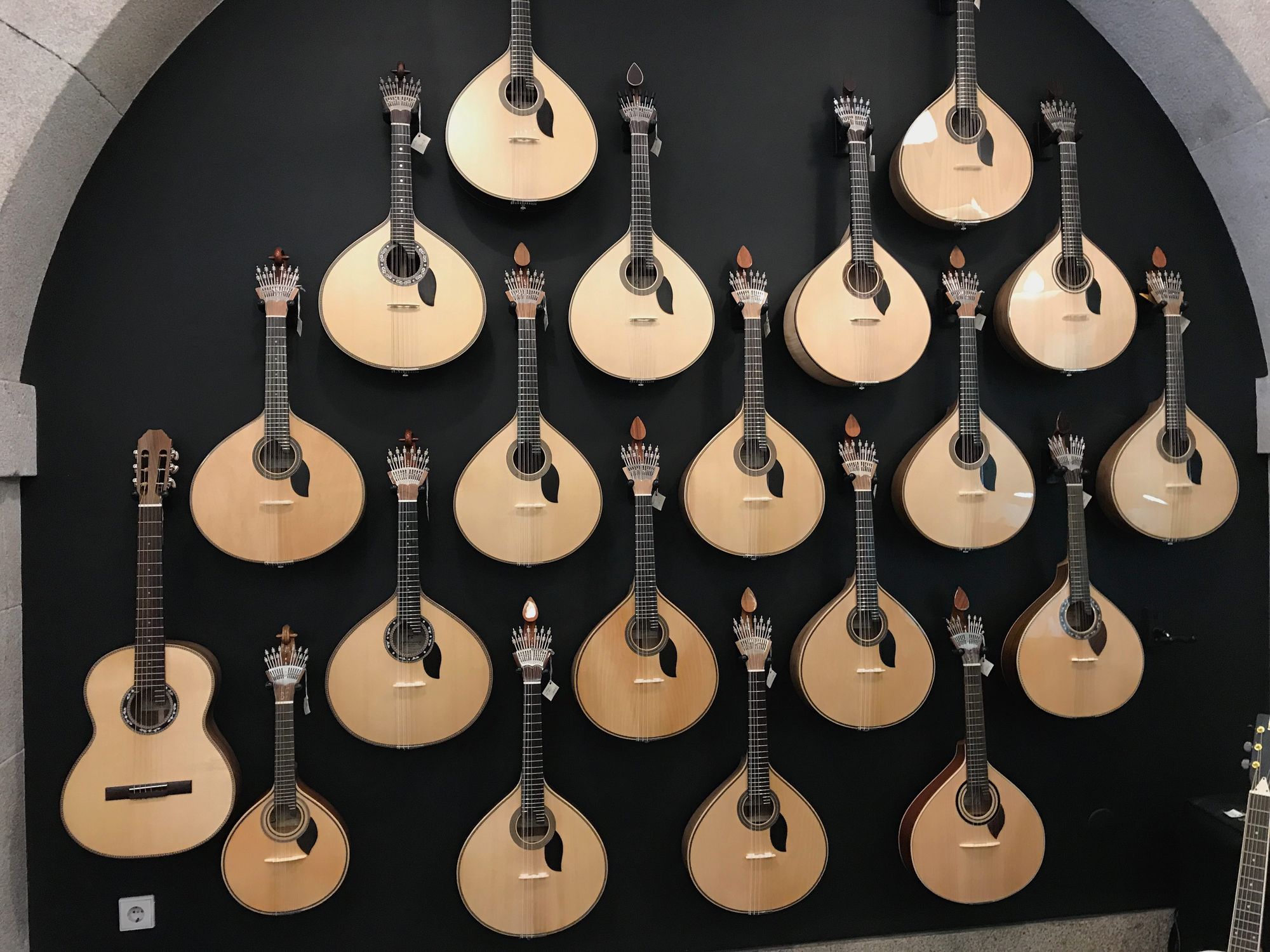
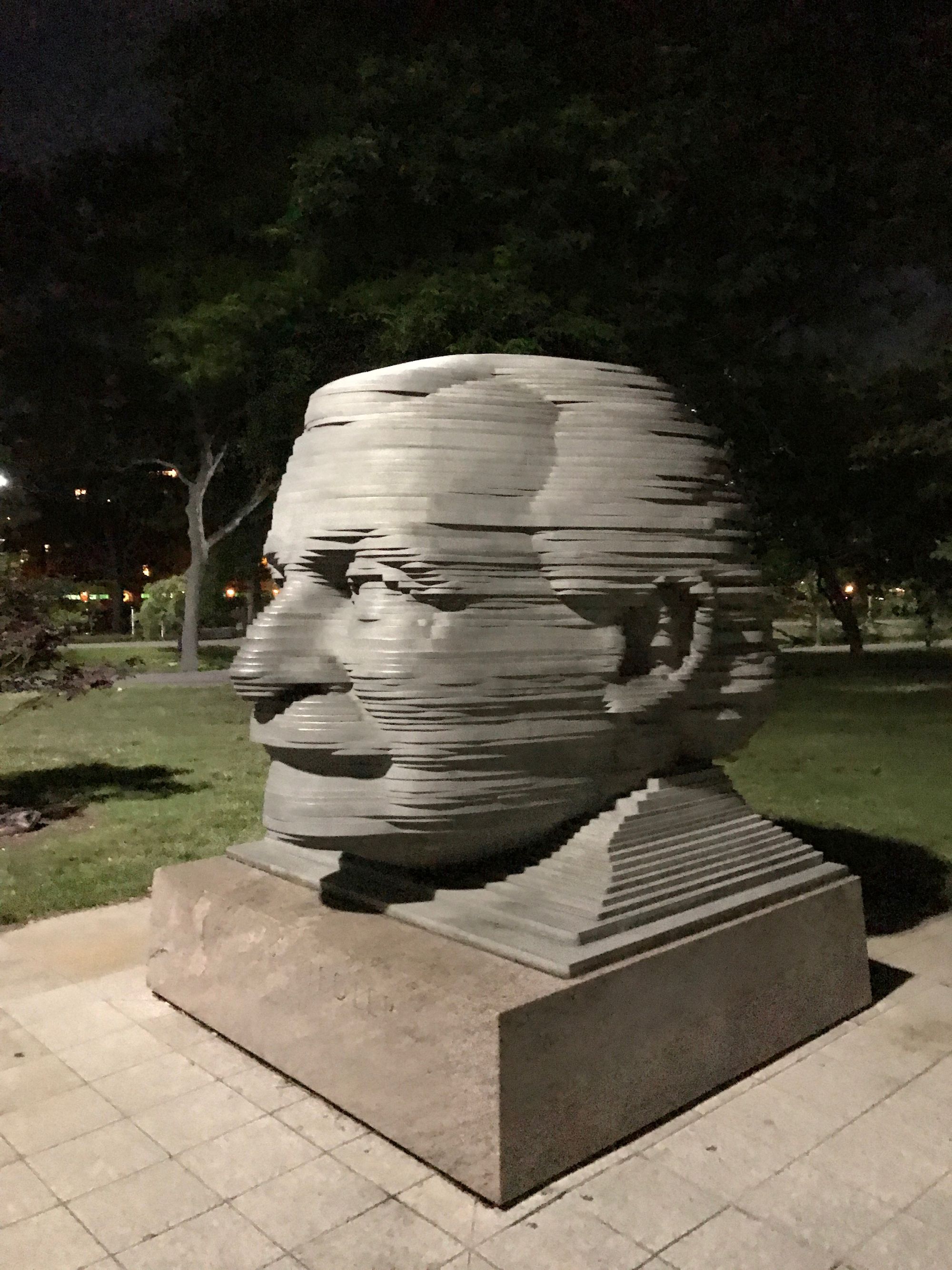
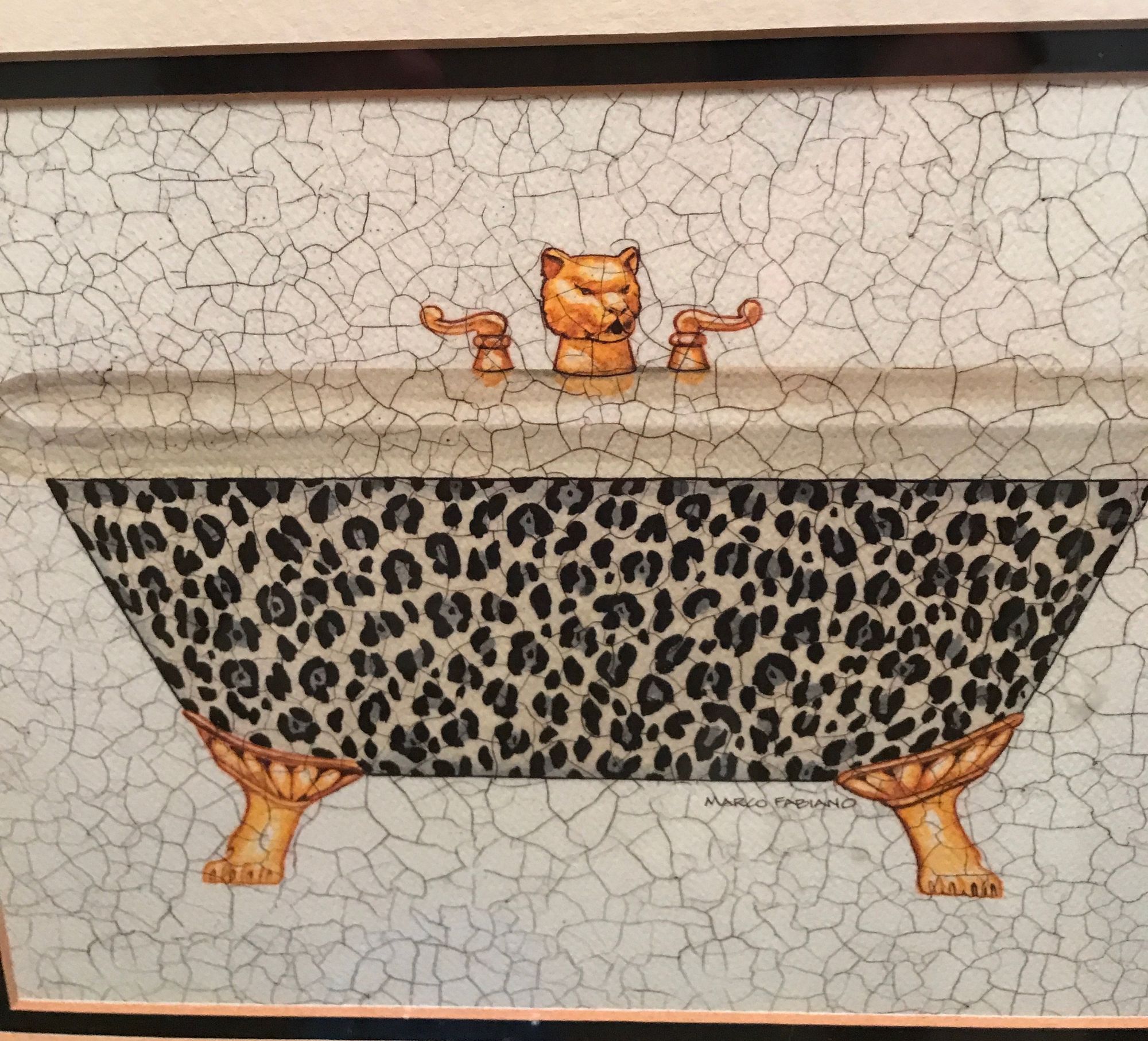
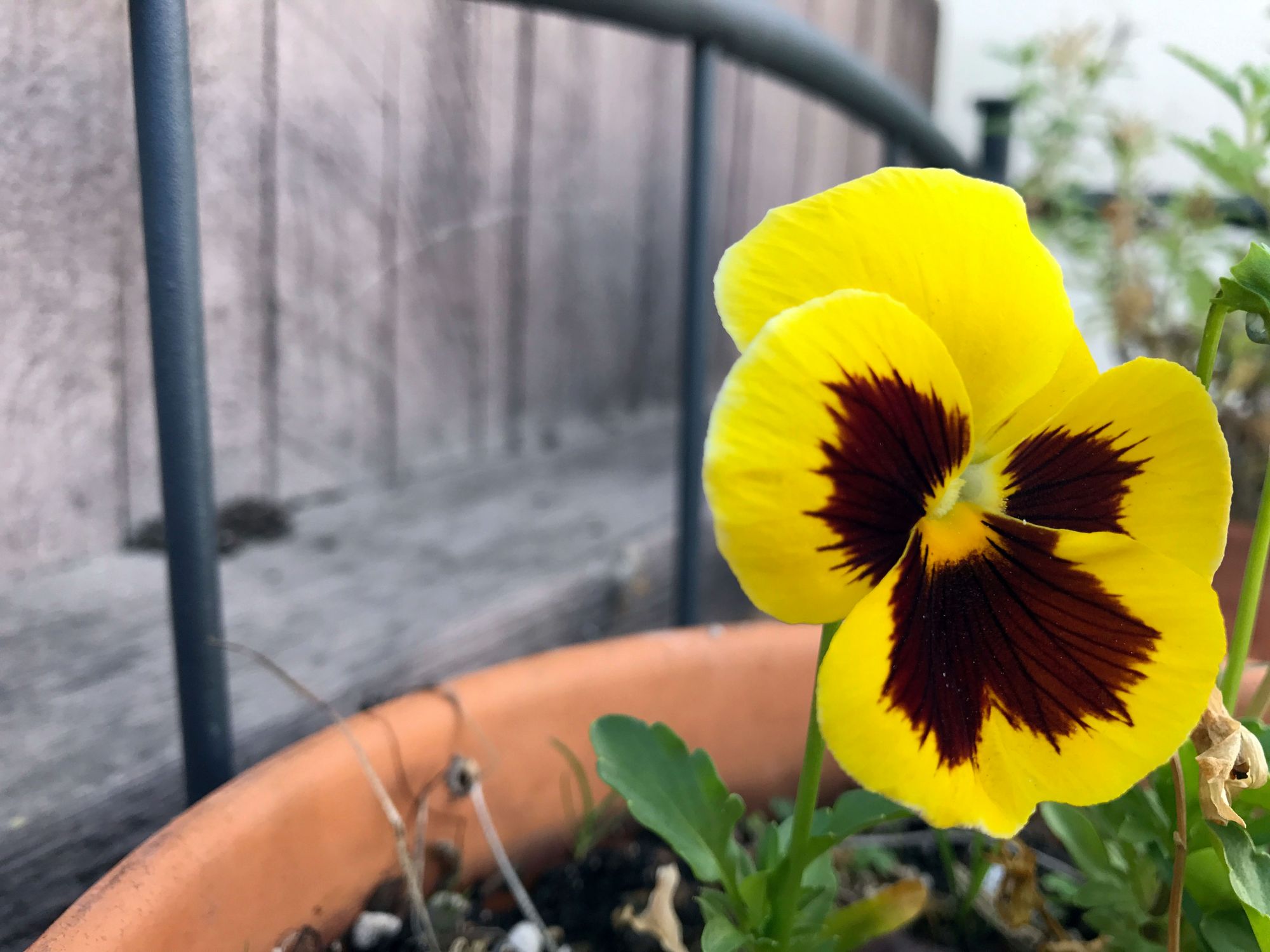
Lessons from Optimists
by Ken Homer
Moods are to emotions what weather is to climate – they are predispositions to action. There’s no denying that our species is going through a tumultuous phase right now. Most people are aware of the existential threats unfolding all around us. Many of these threats are human-created, and thus my hope is that they can be human-dissolved. The mood of a great number of people is suboptimal for coping with such threats and this mood is fed and amplified to a large degree by both social and broadcast media. To address existential threats, people need access to moods of wonder, curiosity, ambition, and possibility.
A few years ago, I was invited to create and teach a course on Coaching Skills for Wellbeing at San Francisco State University. In preparing that course, I realized that I am usually an optimistic person, but that my long-term view of humanity’s prospects is darkened by what I know about the various threats to our biosphere. These threats paint a grim picture of our future, and we don’t yet know how to solve them. My long-term view frequently compromises my ability to stay buoyant in my daily life. I decided to interview some self-identified optimists to see if I could learn from them how to better balance my short-term optimism with my long-term sense of dread. It was a fun and interesting project, and I did indeed gain some significant insights into how to be more balanced. Here’s a summary of my anecdotal findings.
Who I Spoke With
- Six people
- All over 50
- Three Women and Three Men
- Three People of African Descent
- Three People of European Descent
Q: When did you realize you were an optimistic person?
- Five out of six said they’ve been optimistic their whole lives.
- One reported she had to learn how to be optimistic.
- Two stated that although they are optimistic people, they struggle with depression and anxiety.
- All spoke of how being optimistic increases their sense of agency, possibility, satisfaction, joy, love, and fulfillment in life.
Q: How do you maintain an optimistic outlook in the face of daily challenges – big and small?
- Have a sense of The Big Picture – asking: does this really matter in the long run?
- Developing a daily gratitude practice – it is amazing how well this works.
- The Serenity Prayer – accepting what I cannot change, focusing on what I can change.
- Being mindful of what I allow in my life – avoiding negative and toxic conversations, people, news, and environments.
- Seeing events as neutral – it’s not what’s happening, it’s my attitude about what’s occurring that determines if something is good or bad for me.
- Recognizing that I am not my past, it’s how I respond to what happens to me that matters.
- Allowing myself to deeply feel my emotions so they can move through me.
Q: What specific practices do you turn to when you find yourself tested?
Top Responses:
- Exercise – I get moving and get my heart rate up.
- Diet – I make sure I am avoiding junk foods and eating health supportive foods instead.
- Time in nature – being outdoors opens up different perspectives.
- Calling friends and family who will lift me up.
- Meditation – sitting or moving: accessing a calmer, quieter space within.
- Self-compassion – I am one person, not everything is up to me.
- Accepting and reframing – asking, how can I turn this to my advantage?
- Be able to vent – have people you can vent to who will listen and say: OK, now what?
- Steering by rear view mirror* – remembering challenges my ancestors overcame.
- Prayer – faith in God, Nature, a Higher Power, or a Benevolent Presence.
- Blending with – the practice of stepping into and moving with the resistance.
- Zooming out – expanding the timeframe to 10,000 years.
- Practice dwelling in not knowing, giving space to complex and confounding things.
- Envisioning the world if all the terrible things I think of don’t actually come to pass.
- Paying attention to my body and my thought loops.
- Knowing that everything changes in its own time, accepting that I can’t push the river.
Q: When have you been hard pressed to stay optimistic?
Dealing with:
- Major health crisis.
- Loss of loved one.
- Difficult family matter/member.
- Coming to grips with own mortality.
- Coping with depression.
Q: How do you use optimism when dealing with transitions?
- Seeing challenge as opportunity for growth.
- Recalling lessons I’ve learned when I’ve gone through other rough patches.
- Keeping my sense of humor – life is too tragic to take seriously.
- Talking out my feelings with trusted friends or family members.
- Telling the truth about what is happening – don’t sugarcoat or succumb to denial.
- Fully feeling any difficult emotions while knowing that they will pass, and that I will grow from the experience.
- Focusing on what is possible and what I can do now with what I have, where I am.
- Reaching out and asking for help.
Q: How do you use optimism when dealing with transitions?
- Building momentum from small things.
- Acknowledging fear and listening to love.
- Being insatiably curious!
- Staying in touch with childlike wonder.
- Focusing on what I can do and letting the rest take care of itself.
- Never give up! If you never give up, you will never fail.
- Being my own strengths-based coach – I believe in me!
Comments from interviewees:
- Being optimistic doesn’t mean everything is great all the time, I struggle with hardships like everyone else, I just have a perspective that sooner or later the hard time will pass, things will work out, and I’ll feel good again. And so far, this has proven true.
- I learned early on that the world is a harsh and impersonal place where both miracles and horrors take place. If my state of mind is dependent on things in the world working well, I am setting myself up for failure. I do what I can to make a positive difference and then I let go and let the world take care of itself.
When I inquired what she meant, she stated that her ancestors have been in the USA for over 150 years, arriving from Africa as slaves. They were thrown into a world where they had no legal rights as human beings (see SCOTUS’ Dred Scott decision). They did not give up hope but persevered and so when she is feeling overwhelmed, she draws on their strength and fortitude because, as she put it: “if they didn’t give up despite being virtually powerless in the face of horrible repression, I can’t let them down by succumbing to my despair when I have so much more agency than they did.”
* “Steering through the rearview mirror” came from a person of African descent.
“Tools for Thinking” Events
by Jerry Michalski
I am helping betaworks, a venture capital firm and accelerator based in New York City, produce a series of very OGMy events focused on Tools for Thinking. The first event is a hybrid, all-afternoon session on August 16, RENDER: Tools For Thinking. There's a $100 fee for attending in person, unless you're developing Tools for Thinking. The livestream will be free. You're extremely welcome to participate, in any of these ways:
- Register and watch the livestream.
- If you're near NYC, attend the Render session!
- Built a Tool for Thinking? Apply for betaworks' Think Camp, which will run ten weeks this fall.
- Love using Tools for Thinking to map, annotate, weave and storytell? Join Jerry in scribing the event series.
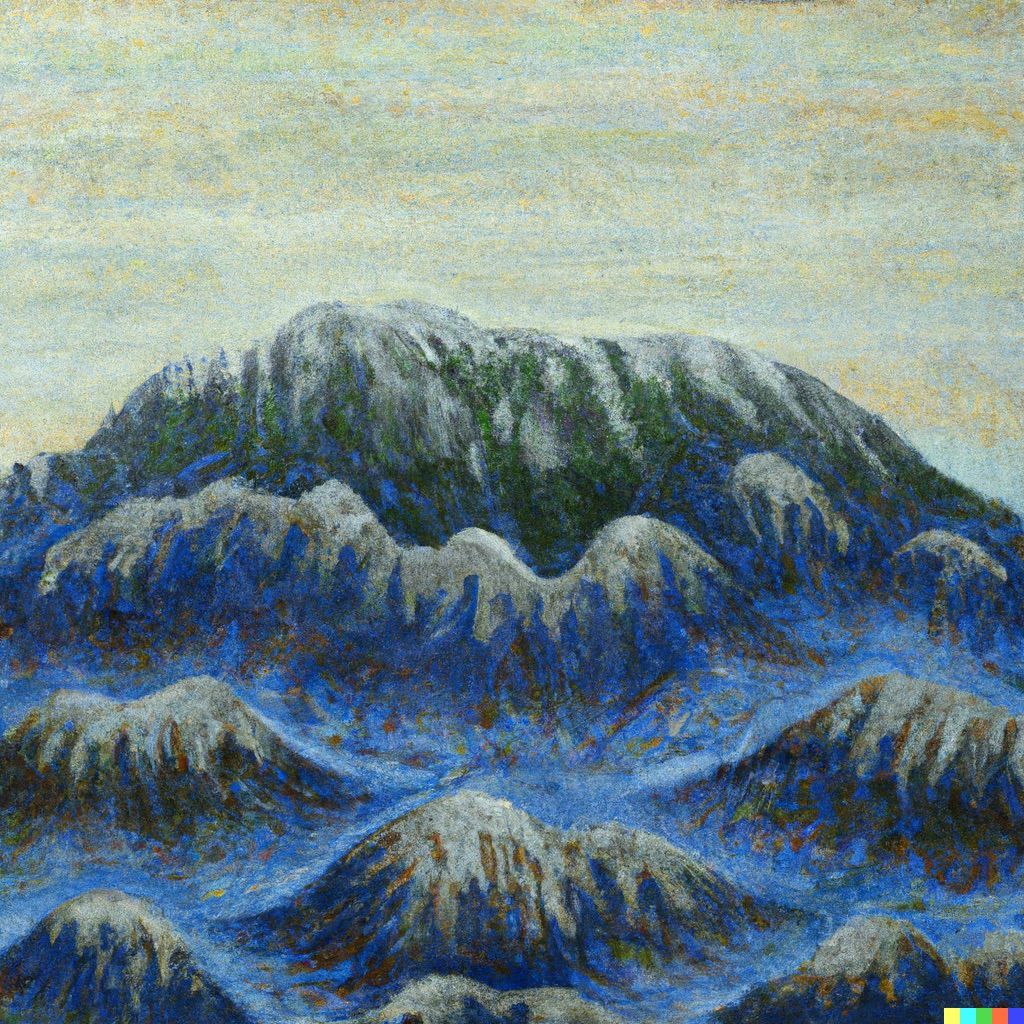
Now We Need Scale
by Klaus Mager
I was thinking about Donella Meadows within the context of developing the next webinar on Farm Bill issues. Systems change is a 2-way street; there are directives that will travel top down, and there is information that must travel bottom up to inform such directives. A government held captive by special interests will suppress information traveling up because it interferes with the narrative that drives self-serving decisions, creating a vicious cycle of inefficiencies.
To force non-violent change into the system requires intervention at paradigm level, which must then be reinforced along the stages of implementation. Systems adaptation requires uniform information along the entire chain, customized to the context of each part of the system that may be uniquely impacted.
Places to Intervene in a System
(in increasing order of effectiveness)
9. Constants, parameters, numbers (subsidies, taxes, standards).
8. Regulating negative feedback loops.
7. Driving positive feedback loops.
6. Material flows and nodes of material intersection.
5. Information flows.
4. The rules of the system (incentives, punishments, constraints).
3. The distribution of power over the rules of the system.
2. The goals of the system.
1. The mindset or paradigm out of which the system — its goals, power structure, rules, its culture — arises.
Changing our relationship with food is a profound undertaking, no matter what the reason. Understanding that the way we grow and raise food is polluting and damaging the entire ecosystem, the oceans, watersheds, soil, air, our health, and then processing that in a personal context-specific way to adapt and change behavioral patterns.
Thinking about how different segments of the population experience food in unique, emotional ways, interpret the implications, isolating what exactly would encourage change in specific population segments.
Climate change for some, watershed pollution for others, chemicals in the food supply, biodiversity, pollinator habitats, animal cruelty, cancers, diabetes, obesity, heart disease ........ unique stories focused on segment specific resonance.
While the regenerative movement has made great progress to explain the pathologies of the industrial food system, and to offer real alternatives to regenerate soil and water, it has not been able to translate the implications of what that means to the general public. As the corporate driven legislative process solidifies its opposition, a well-informed and engaged public must provide the pull and demand change.
Back to target group marketing, developing communications strategies that can flow around, under, over the existing paradigms. We are gaining traction.
Now we need scale.

Snowden, Smith and the Cynefin Framework Down Under
by Wendy Elford
There’s been plenty of good and bad and a very messy in between with the pandemic. One of the better outcomes is that communities worked on their projects online, people found the time to slow down, read or connect in other ways.
Now there’s more travel happening, Dave Snowden, Beth Smith and Cynefin Framework-oriented people in Australia and New Zealand are getting together face to face and Wendy E is getting close enough to a lot of the action to be able to share some of what is popping up after all of that 2020-2022 incubation.
Last week, Dave spoke at an event on the EU Field Guide at KPMG where he spoke about the latest addition to how the Cynefin Framework can be applied in times of uncertainty. We did Constraint Mapping using our Covid experiences as a starting point – what worked well? What worked, but would not next time? What didn’t work? One of the things we discovered in our group was that if we made our ideas too abstract we got stuck. We needed smaller, person-sized and experience-based answers to those questions to pick out and map those constraints in a way that allowed us actions to take.
Below is an example of a map our group created:
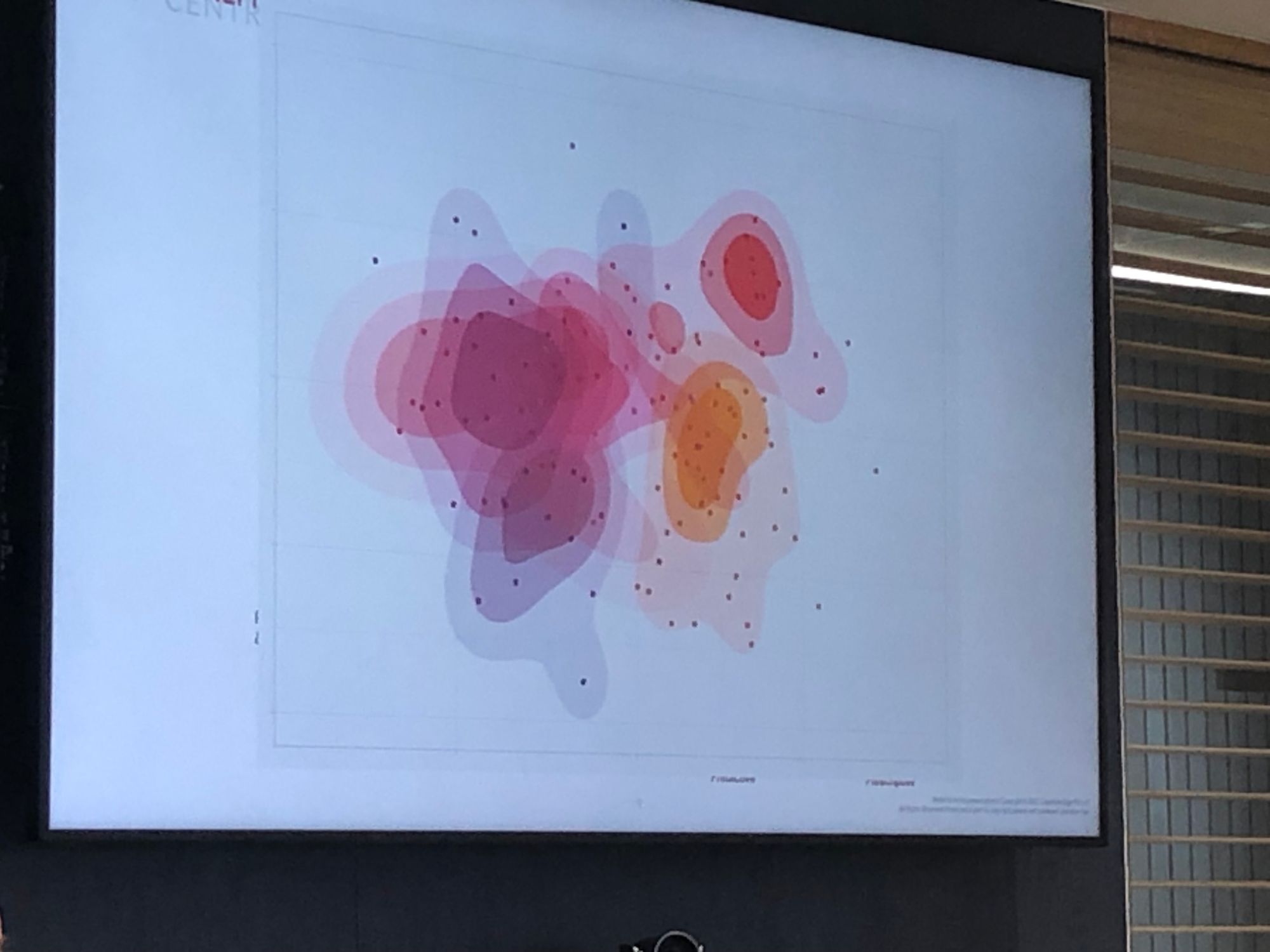
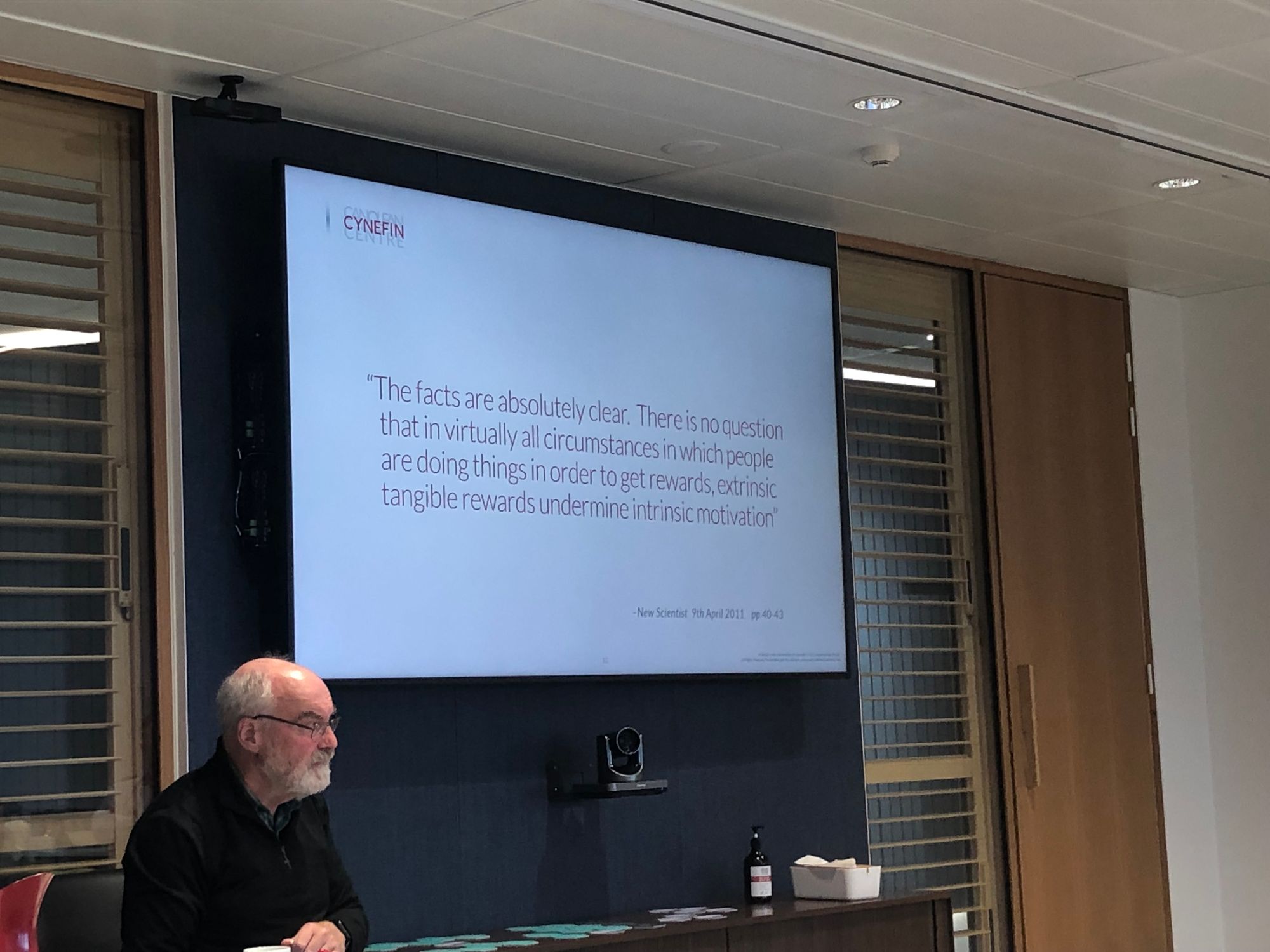
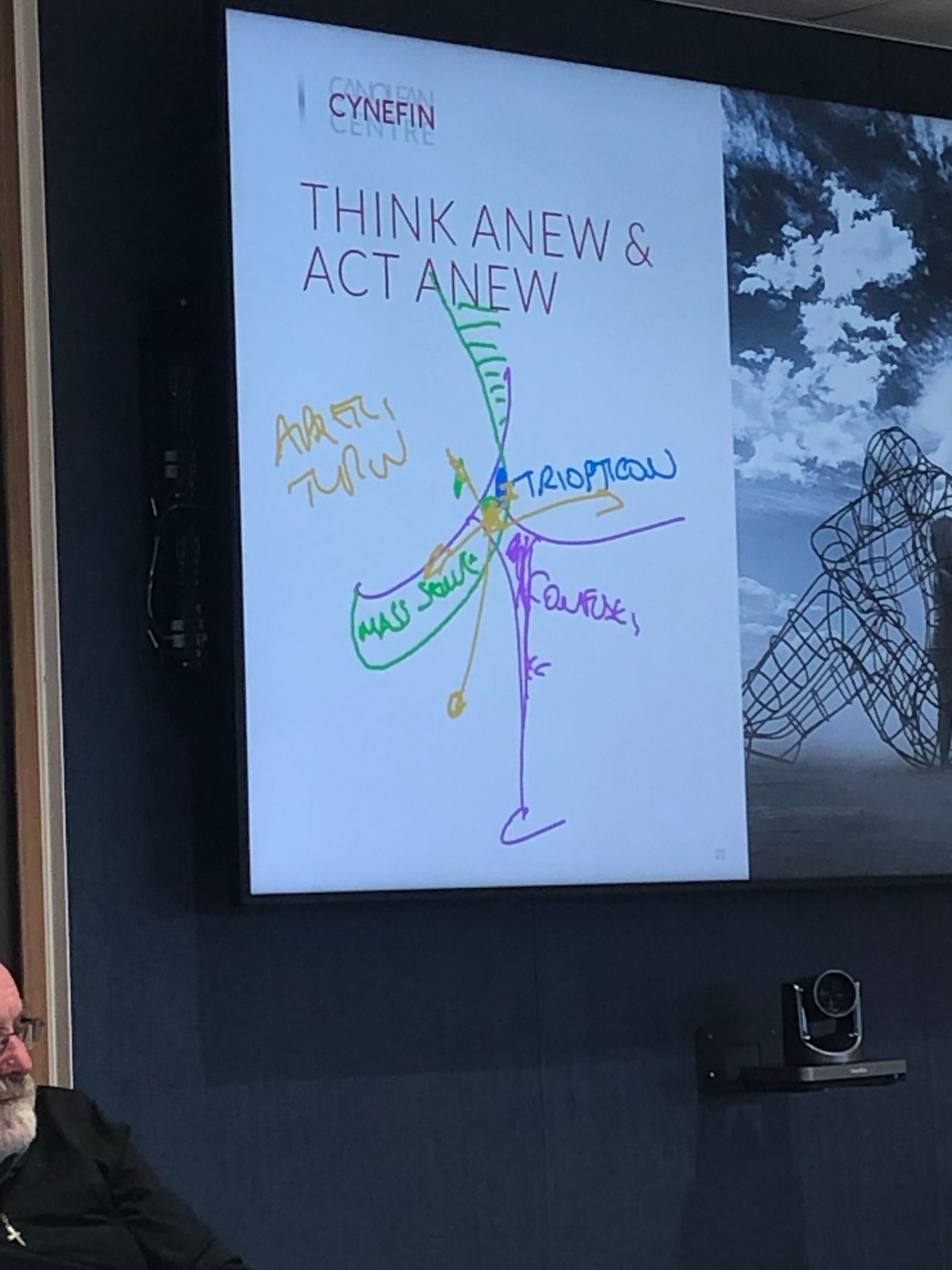
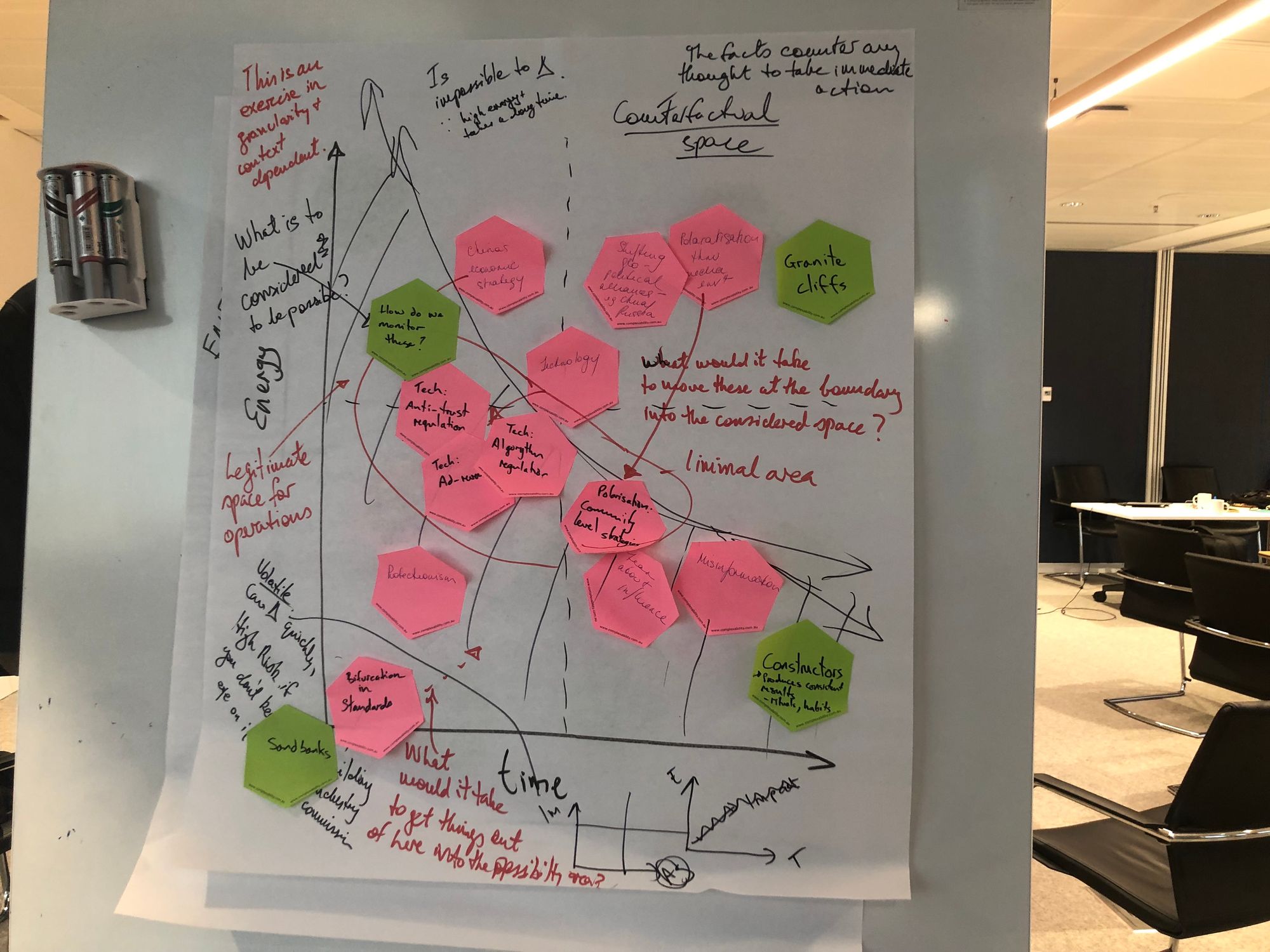
The bottom left is where actions taken would be too volatile to risk – the top right is where actions would be too slow or too expensive / awkward etc so not the best place to start. So in short, lots to share.
Next week there is an event on Local Self Reliance for Communities, half a day on simulation and a two day workshop on Design. The following week is an event on Indigenous knowledge systems meets a more western oriented set of methodologies. And a three day retreat 17th – 20th August on Community Engagement with a strong design and Indigenous issues component. You can join the retreat virtually (paid – link to registration) - to be part of the action and follow up discussions. We will be using SenseMaker. If anyone wants to know more about what is happening and to ask about the retreat message Wendy Elford on Mattermost or email wendy@wendyelford.com.
All in all – many good people coming together to make the world a better place.
Thank you for reading! Next edition will be published on 17 August 2022. Email Pete with suggested submissions.
Special Thanks to Our Contributors: Charles Blass, Wendy Elford, Ken Homer, Kevin Jones, Klaus Mager, Jerry Michalski, Jonathan Sand. You are awesome and we want the world to know it. :-)